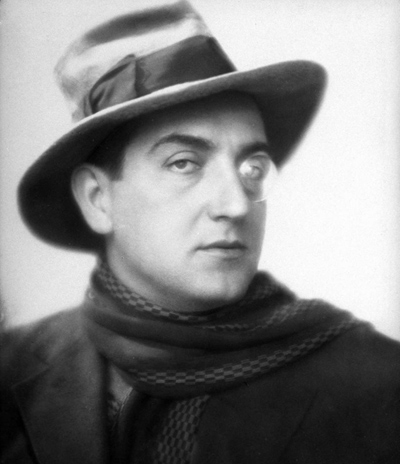

© 2012 William Ahearn
In 1933, Fritz Lang's life arrived at the proverbial crossroads. Around him stood the complete political and cultural takeover of Germany by the Nazi party that had banned his latest film, “The Testament of Dr Mabuse” and behind him was over 15 years invested in the German film industry. Starting as a writer he rose to become one of Germany’s best-known directors.
Lang — decades later — would tell a harrowing tale of an afternoon summons to the office of Josef Goebbels — the Reich Minister of Propaganda of Nazi Germany — in 1933 to be offered the job of running the German film industry. The story includes ticking clocks, banks that would close and train schedules and many historians have cast serious doubt on the story and it’s safe to say that Fritz Lang isn't always a reliable witness to his own history.
In the case of Fritz Lang, there is a very good reason. Where Fritz Lang's films end up in the ever-shifting annals of film history remains to be seen and it’s generally believed that he won’t win any personality contests. By whatever yardstick is used he always comes off as the stereotypical aloof and dictatorial director and the stories of his risking an actor’s life and limb for a good take are more than numerous. There are suspicions that surround the death of his first wife — whose existence is rarely even mentioned in the Lang mythology and questions about whether his opposition to the Nazis – that became part of the Lang lore in Hollywood – ever actually happened. While he made some friends in his career others such as Peter Lorre rarely spoke to him again after working with him once.
Lang’s career spanned geography, language and culture; it also bridged the silent and sound eras and most of his silent films are now readily available to clearly show how his Hollywood films are vastly different from his earlier — and still better known — work.
It’s impossible to recreate or understand the now distant chaos of Germany in the post-World War I era and there has been a lot of discussion about how the war affected the Weimar-era films and what role expressionism played in the career of Fritz Lang. Wherever possible I’ve included contemporaneous reviews from publications and relevant quotes from Fritz Lang or film historians as to the particulars of a film. Interpretation is a thing of the moment and some of it merely becomes part of the haze that surrounds — and sometimes distorts — the appreciation of a film.
Living in the brave new digital world has its upsides. It is now possible to watch Fritz Lang’s films in the order that they were made and several previously lost films — that weren’t available to biographers Lotte H Eisner, Frederick Ott or Robert Armour (and still apparently unseen by more recent biographers) — are now available to download from the Internet Archive or be streamed at other websites. These essays will make more sense if read in order as they follow Lang’s creative path.
The Spiders: The Golden Lake (1919)
